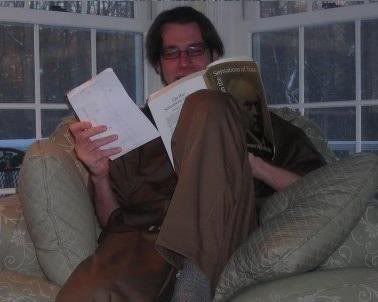This is a highly speculative essay.
Two questions to begin with: Can God stop time, and, can God change the past? Note, the same question can be asked as: Can time stop, and, can the past change? These are not questions about the nature of God, but about the nature of Time. The reason I introduce God is as a mechanism for these processes, i.e., what could possibly manipulate time in this manner but God?
The answer to the first question is no, which will require a slight discussion, since, well, can’t God do anything? This is an important point in general discussions of God, which this is not, so I’m only going to speak briefly on it. God cannot do the logically impossible. For example, God cannot make a married bachelor or a living corpse, or a square circle, not because He lacks the materials, skills, and power to do so, but because it is nonsense even to speak of such things. If we demand that God create such a non-thing, the problem is in the demand – in that it doesn’t ask God to do anything that makes any kind of sense – and not in the Power of God.
So, can God stop time? Let me ask it this way: Can God stop time for an hour? See the absurdity? If time were to stop, it would have to stop for a period of time. Therefore, it is nonsense to think time is the kind of thing that can stop. Stopping is an event that only makes sense within the context of time. God may be able to stop all events in time, but if anything is stopped, then by definition time is still passing.
How about the second question: Can God change the past? This one is more complicated. On the surface the answer seems to be no. The past is defined as what has already happened. The future is open to many possibilities, based on the choices of God, Man, and any other being that might be that can choose. But that’s because it hasn’t happened yet. There is only one past.
We must distinguish between two ways of looking at time: Physical time and Experiential time. To accomplish this end, we get to talk about a time traveler. Looking out of the window of his time machine, he sees the movements of the physical objects around him slow down, stop, and then reverse. The sun goes from west to east, tidal waves build coastal towns before being released into the ocean, and life ends with the sexual act. Think of a video playing in reverse (not that last one). No logical contradiction in that. But for the time traveler, these events are happening in forward time. Though time in the world around him stops, reverses, his past is still the events leading up to this quest; his present experience is progressing forward while nothing around him is progressing forward; and his future is still unwritten, even though it occurs in “the past”. Time as it is experienced is unidirectional. There is no contradiction in things moving backward and forward in physical time. Experiential time, however, is a matter of experience building upon experience. To go backward in experiential time is to forget your experiences.
(There are other paradoxes of time travel that don’t directly bear on this so I don’t deal with them here)
But what this means is that if experiential time did reverse alongside physical time, we systematically wouldn’t know it happened. We would just go back to the point of divergence as if all the intervening time never happened, and pick up from there with new choices and experiences. But if such is the case then it is possible that it happens. And, though the basic idea doesn’t require God, the reversal of time and the changing of the past are logically possible. If there is a God, this adds another dimension to his power.
So the answer to the second question, can the past change, can God change the past, turns out to be yes. Now the speculative part: Say this actually happens, through God or through one of nature’s countless unexplained forces: Perhaps this has some role to play in our ability to anticipate the future, or in a theory of volition.
Wednesday, November 7, 2007
Subscribe to:
Comments (Atom)
